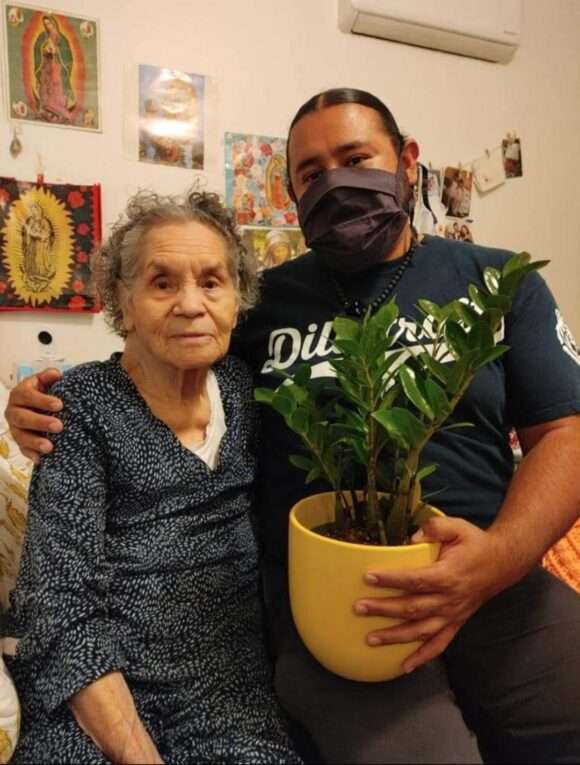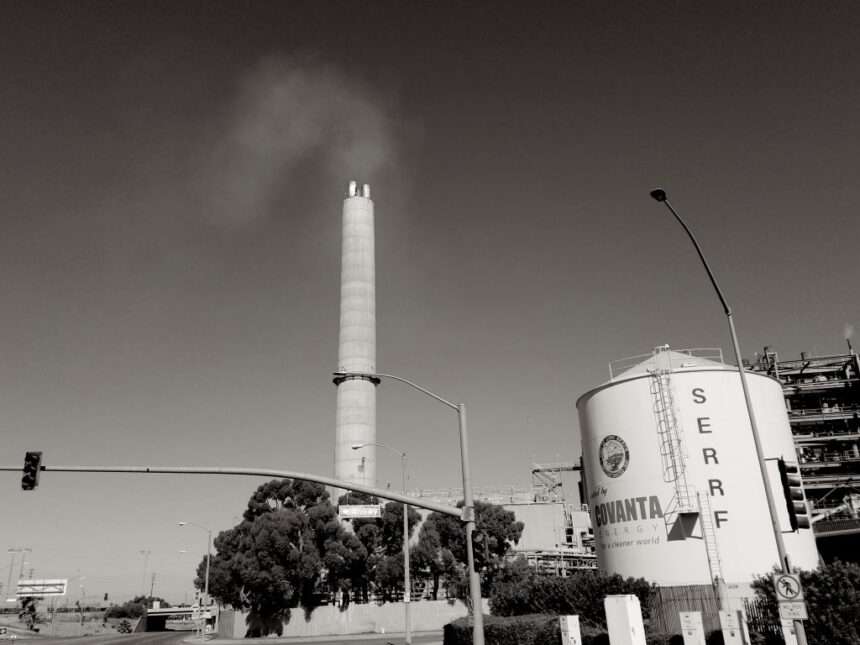Recently closed Covanta incinerator in Long Beach, CA. Photo credit: East Yard Communities for Environmental Justice
EJ Communities force California’s last two waste incinerators to shut down
These are historic times. As the world wakes up to the intersectional nature of environmental racism, climate chaos, genocide and war, thousands of frontline communities continue to engage in pitched battle against those who are destroying people and planet. And while stepping up efforts to stop colonial genocide, we also need to take the time to acknowledge some of our hard-fought movement victories against common foes.
This year marks a couple of historic victories for environmental justice (EJ) communities in the US. After over three decades of struggle, East Yard Communities for Environmental Justice (EYCEJ) and Valley Improvement Projects (VIP), in collaboration with numerous allies, have forced the closure of California’s two remaining waste incinerators. This marks a turning point in an age-old battle with an industry that still operates scores of garbage burning facilities that dump high levels of dioxins, heavy metals, acid gasses and particulate matter in Black, Brown, migrant and poor communities around the US.
Since the 1980s, EJ communities have been hugely successful in thwarting the waste incinerator industry, stopping hundreds of proposals to build these dioxin factories. Still, over a 100 were built in the late 80s and early 90s, predominantly in racialized and poor communities. Despite the severe lack of philanthropic support for EJ groups over the years, our struggles persisted. Between 2000 and 2023, our movement has been able to shut down a number of these incinerators, leveraging a growing public awareness that zero waste alternatives creates far more jobs for a fraction of the cost of building and running a billion dollar incinerator.

Detroit EJ groups and Michigan Teamsters protest the Detroit Incinerator, which was shut down in 2019. Photo credit: Brooke Anderson
In the early 2000s, in a desperate bid to survive such losses, the incinerator industry launched a clever campaign – rebranding their trash burners as “Waste to Energy” (WtE) facilities. This greenwashing ploy allowed the industry to access public subsidies by duping lawmakers into believing they produced renewable energy (RE). Despite the fact that these WtE incinerators are some of the most toxic, carbon intensive and costly energy facilities in the world, the industry has been able to keep over 66 incinerators burning, buoyed by RE subsidies from the federal government and a number of states.
Fifteen years ago, when I worked with the Global Alliance for Incinerator Alternatives (GAIA), I facilitated a workshop for EYCEJ who (at the time) were a relatively young collective of community organizers committed to EJ principles and serving their communities in East Los Angeles and the City of Commerce, CA. At this workshop we discussed the state and federal subsidies that had propped up the incinerator industry, and how Covanta, the largest incinerator company in the US, had been accessing energy and waste policy subsidies by targeting gullible lawmakers and even big green NGOs. East Yard organizers had long been inspired by campaigns led by veteran EJ groups, such as the Mothers of East Los Angeles, who had successfully stopped a number of incinerator proposals back in the day. Some East Yard organizer’s mothers and grandmothers had led these campaigns, so they were inspired to carry on the struggle against polluting corporations like Covanta. A similar story was playing out in Stanislaus County, where a decades-long fight against a Covanta waste incinerator had been taken up in recent years by a young EJ formation – VIP.

The intergenerational leadership of our EJ movement: Juana Beatriz Gutiérrez of the Mothers of East Los Angeles and grandson mark! Lopez, organizing to protect their communities for over 4 decades. Photo credit: mark! Lopez
In 2018, EYCEJ, GAIA and other allies were able to stop the State of California from providing RE credits to incinerators, which forced the closure of the Commerce incinerator. Then, in 2022, EYCEJ, VIP, EarthJustice and other allies, successfully passed a state bill (AB 1857) that removed waste diversion credits from the last two incinerators in Long Beach and Stanislaus County. This removal of state subsidies has forced Covanta to announce the closure of these final two facilities this year. This is a huge win for EJ communities everywhere, and a highly instructive victory, especially since 26 of the 42 state Renewable Portfolio Standards continue to incentivize waste burning.
If EJ groups and their allies in these states were to go after those perverse subsidies, we could see this dinosaur fleet of toxic smoke stacks finally toppled in the coming years! And along with reducing these pollution burdens, this direction could see communities working with local governments and waste and recycling workers to build reuse, recycling and composting infrastructure that could provide millions of well-paying jobs through local, regenerative, zero waste economies. EYCEJ and VIP and other EJ communities are presently leading the way, by working with allies to develop zero waste plans to move away from burning precious resources and move towards long-term community solutions. Now, elected officials and government agencies need to stop giving public dollars to such polluting corporations, and start following the lead of communities and workers on the frontlines of such transformative change!

